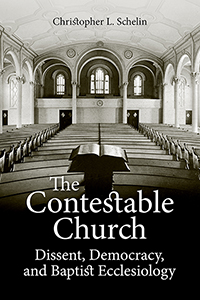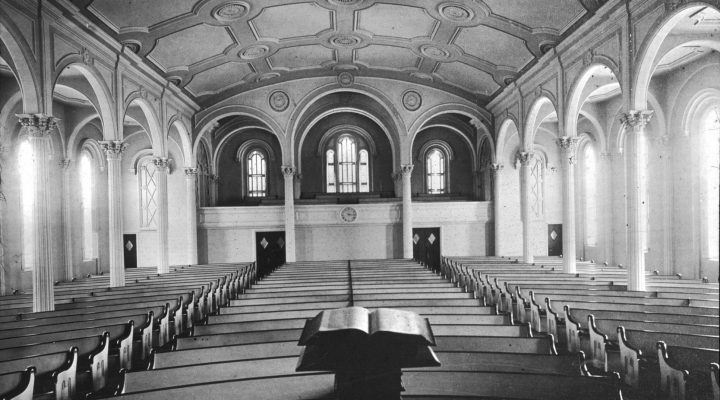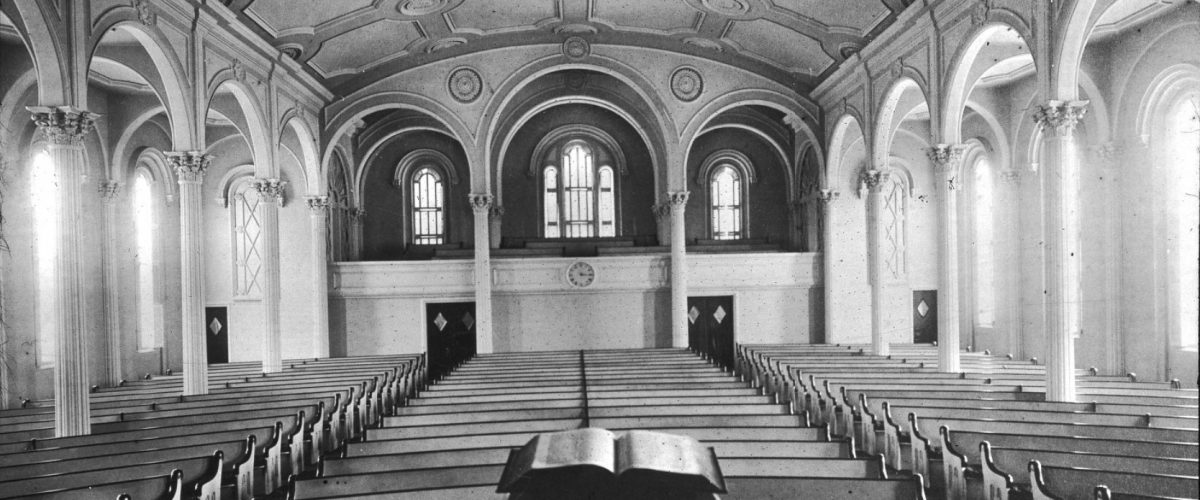American democracy is under serious threat as we approach the 2024 election.
Former President Donald Trump and the MAGA movement have normalized political violence in the wake of the January 6 riot, invoked poisonous and dehumanizing speech about opponents as a badge of honor and, via the proposals of Project 2025, threaten to remake the administrative state into a hyper-partisan vehicle of minoritarian obstruction.

Christopher Schelin
I live in progressive coastal California and was reminded of the enduring and passionate support for Trump among vast swathes of the country during a recent trip to Southwest Missouri and Northern Arkansas for the total solar eclipse. I encountered numerous Trump 2024 flags on proud display, and in the town of Branson the “patriotic” Trump Store sits on the roadside on one route toward the entertainment district. The store is linked to a website where one can buy such shirts as “I love Trump because he pisses off all the people I can’t stand” and another with a pseudo-quote from George Washington: “Me and my homies woulda been stacking bodies by now.”
Alongside fellow Christians, I continue to lament the firm grip the Trump phenomenon keeps on the moral imaginations of so many believers, especially white evangelicals and those who, like me, claim the Baptist tradition as their ecclesial home. How could people supposedly shaped by the teachings of Jesus, as well as central Baptist principles such as the liberty of conscience and the priesthood of all believers, embrace a cult of personality and express sympathy for, if not outright endorsement of, a reactionary Christian nationalism?
The diagnoses have been numerous and need not be elaborated again.
“Just maybe, if we want to save democracy, one place to start would be to rebuild democratic habits in our congregations.”
I accept that a major impetus is the cumulative force of several cultural and demographic shifts, leading conservative Christians to adopt a fortress mentality as the old ground of privilege erodes around them. But I suspect one contributing cause is a failure of Baptists and other “free church” traditions to fully embody our own democratic form of Christian discipleship. And just maybe, if we want to save democracy, one place to start would be to rebuild democratic habits in our congregations.
The nature of Baptist democracy
My new book, The Contestable Church: Dissent, Democracy, and Baptist Ecclesiology, was written to help Baptists sustain and strengthen our democratic way of being church. Not all Baptists like to identify our ecclesiology, or form of church organization, as “democracy,” and for understandable reasons. Such language could suggest a denial of the authority of the risen Christ or an adversarial, zero-sum approach to congregational decision-making.
But Baptists have been referring to themselves as a democratic people since the early 19th century, and this self-understanding made its way into the Southern Baptist Convention’s confession, the Baptist Faith and Message, in 1963.
I affirm that democracy is an appropriate term to mark the distinctive manner Baptists have sought to discern the will of Christ through the power of the Spirit — not by subjecting themselves to the oversight of bishops or synods, but by mutual prayer, exhortation and study of Scripture. Every member has the right and responsibility to participate in church governance.
Historically, Baptist democracy has been expressed in practices that exemplify this vision of shared responsibility. These include lay “prophesying,” in which multiple people interpret a Bible passage in worship (sometimes spontaneously), and monthly church meetings for making decisions and exercising discipline. Early Baptists exhibited a deeply communal and highly participatory, but also fiercely sectarian, faith.
Over time, Baptist democracy has attenuated as we have become more individualistic and deferential, reducing the liberty of conscience merely to “private judgment” and ceding more responsibility to seminary-trained clergy.
“The weakness of Baptist democracy, I propose, is that it is not democratic enough.”
The weakness of Baptist democracy, I propose, is that it is not democratic enough. It has frequently become limited to occasional votes at poorly attended business meetings, while Bible study is structured by pre-packaged curricula and worship is a relatively passive reception of prepared music and monological preaching.
We mustn’t romanticize our forebears in an effort to “make Baptists communitarians again.” Despite some early countercultural impulses, early Baptists never fully resisted, and ultimately fell in lockstep with, prevailing patriarchal and racist norms. They often were dogmatically insular, excommunicating members for departures from doctrinal and moral standards we would find peculiar at best.
Subsequent history has repeatedly demonstrated that collective harmony is bought at the price of painful exclusion and lasts only for a season, if ever it was authentic to begin with. Any effort to renew Baptist democracy must chart new paths in awareness of our historical limitations.
Learning from radical democracy
 In the book, I turn to the strand of political theory known as “radical democracy” as a tool to help Baptists reinvigorate our way of being church. I am not the first theologian to spot parallels between radical democrats and Baptists, such as shared emphases of egalitarianism and the local as the primary site for political/ecclesial participation.
In the book, I turn to the strand of political theory known as “radical democracy” as a tool to help Baptists reinvigorate our way of being church. I am not the first theologian to spot parallels between radical democrats and Baptists, such as shared emphases of egalitarianism and the local as the primary site for political/ecclesial participation.
But the principal theme of this political tradition invites renewal within the very dynamic that has brought us the most grief. According to radical democrats, the central and most vital aspect of democracy is conflict.
Baptists, of course, have been very good (or is it “very bad”?) at conflict from the very beginning. We have been a passionately argumentative corner of the church — hence the old joke that if you put three Baptists in a room you’ll get four opinions. But the suffering caused by our internal battles is no laughing matter, as I experienced firsthand in the bitter fight over the identity and direction of my alma mater, Louisiana College. Conflict has brought out the worst in us — is it better for us to avoid it as much as possible?
Radical democrats say no.
The problem with conflict is how we have approached it, whether as something to be avoided, carefully contained or pursued with vigor only when we view the other side as an implacable foe. But conflict (or dissent or disagreement) is a natural outcome of an encounter with difference, because in the other we are confronted with ideas, actions and proposals that do not neatly align with our own.
“Radical democrats seek to orient politics around practices that intentionally welcome respectful conflict.”
The question before us is whether we are willing to meet that difference as opportunity rather than crisis. Radical democrats seek to orient politics around practices that intentionally welcome respectful conflict. Engaged in this manner, conflict serves as a constructive tool to imagine and enact new possibilities of life together. In other words, conflict creates space for conversion.
My book offers a scholarly comparison between Baptist thought and practice and the writings of one radical democrat, Romand Coles. I compare his insights with those of certain Baptist theologians to re-evaluate key themes such as soul competency, the priesthood of believers and pastoral authority.
If Baptists are to exercise a democratic form of church government, I believe it should look something like radical democracy: highly participatory, hospitable to dissent and open to the surprising work of the Spirit when we exercise vulnerable and collaborative discernment.
In the conclusion, I offer a few suggestions for how such a vision could take tangible shape in Baptist churches. These include expanding practices for the communal reading and interpretation of Scripture, adopting patient processes of consensus decision-making and enacting traversals of denominational, racial and socioeconomic barriers.
Such ideas are but gestures toward greater work to be done, and I name some resources for readers’ further exploration. The essence of all these proposals is that we should fearlessly attend to, and find God at the intersection of, the differences we naturally shy away from.
Building habits for a democratic culture
I did not write my book for the present political moment, and you won’t find Donald Trump’s name anywhere in its pages. While the focus of my work is the renewal of Baptist congregations, I agree with David Gushee’s argument in Defending Democracy From Its Christian Enemies: How we practice democracy in church can shape how we practice democracy in wider society.
The word “democracy” has both a narrower and a broader meaning. In its narrower use, what we may call “procedural democracy” names rules and formal norms that govern the political process, from the United States Constitution to the bylaws of First Baptist Church of Anywhere. These are the standards that define who votes and how, or elected offices and their terms.
In the broader sense, what we may call “democratic culture” names the ethical values and social habits that define democracy as a way of life. As Jeffrey Stout writes in Democracy and Tradition, these are the virtues in which fellow citizens understand themselves as accountable to one another, seeking to give reasons and persuading rather than issuing demands and coercing.
“Democracy is upheld by ethical commitments of mutual respect, authentic listening and openness to new insights.”
Defending democracy means, therefore, not just maintaining a legal system of voting, or adhering to Robert’s Rules of Order. In the fullest sense, democracy is upheld by ethical commitments of mutual respect, authentic listening and openness to new insights. To reject these commitments and demonize one’s political opponents is already to be anti-democratic.
We’ve experienced this before in accusations of Baptist “liberalism,” and we meet it again in claims to save the “real” America. The collapse of democratic culture prepares the way for the rules of procedural democracy to be bent or finally broken in the quest for total victory.
My direct goal in the book is to encourage greater faithfulness to Christ and a more fully realized love for one another. I want Baptist churches to embody a more robust culture of democracy because this is how I believe the Spirit may best work through us to accomplish God’s purposes. But I also wholeheartedly believe if we make our churches into spaces that are truly receptive of difference, democratic discipleship will train Baptists for a healthier democratic politics.
Then may it be said that the nation is blessed through us.
Christopher Schelin serves as dean of students at Starr King School for the Ministry in Oakland, Calif., and as a senior research fellow at the International Baptist Theological Study Centre in Amsterdam, the Netherlands.
Related articles:
My argument in Defending Democracy from its Christian Enemies | Opinion by David Gushee
The Christian case for democracy | Analysis by Mark Wingfield
American democracy is in danger, and so is the gospel | Opinion by Bill Leonard
Most Americans believe democracy is at risk in 2024 — but for different reasons


